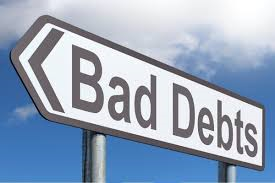Monthly Archives: October 2019
A short case study in improving cash flow #1

Every business owner is rightly concerned about cash flow.
It is not uncommon to see profitable business fail due to poor cash flow.
Yet it never cease to amaze me how little tweaks in a business can deliver dramatic results.
Take the case with one client last week. In our annual general meeting, our analysis software uncovered, amongst many other things, that the business’s cash flow would improve by $8,753 for every day they got they reduced their debtors’ turnover. In their case, this meant having all debtors pay on average with 33 days from the date of being invoiced, not 34. Not much of a change for a big result.
Imagine if they found ways to have their debtors pay on average 10 days earlier. That would mean that they would have an extra $87,530 in the bank at any one time!
For some this could have flow on effects by paying less or now overdraft interest.
We have dozens upon dozens of ideas and ways in which to improve debtor receipts gained from our many years of experience of dealing with many clients in a variety of industries.
We would welcome the opportunity to explore the way in which we can help you. And as our first meeting is free, you nothing to lose – and potentially a lot to gain.
How can I claim car travel?
In order to claim car travel in your personal Tax Return:-
-
You must own the car.
-
You must have undertaken a trip for either your business or your employer.
You can claim under two methods:-
-
Log book, or
-
Cents per kilometre
Tip
You can use a log book kept for three months in the current year or in the last four years (provided the pattern of travel hasn’t changed significantly).
Tip
You must have a properly kept log book. You can do so by buying one in a stationers or you can access an electronic one form our firms app.
Tip
You can claim 68 cents per kilometre under the cents per kilometre method for up to 5,000 work/business strips. This means you can still claim 5,000 km where you travel say 5,500km. Some people choose to do so as it gives them a better claim than under a log book. All you need is a reliable estimate of all trips undertaken during the year.
Want to know what works best for you – call us. We even have a salary sacrifice calculator so we work out the best way to package up a work car and minimise the Fringe Benefits Tax.
SMSF investment strategies
Last month, the ATO wrote to 17,700 self managed super funds (SMSFs) trustees and threatened fines of up to $4,200. The letters were sent to trustees where their SMSF had more than 90% of its assets in one asset class.
It has now come to light that the vast majority of those letters went to those funds where property was the main asset and there was a limited recourse borrowing arrangement (permissible borrowing with super).
The point remains though there is nothing wrong with borrowing nor buying a property within a SMSF. Both are permissible (as long as all relevant requirements are satisfied).
This includes documenting your decisions to do so within an Investment Strategy.
The only thing that appears to have changed is that the ATO has now re-defined a 23 year old requirement and are now expecting trustees to document the decision why you have decided to do so.
Accountants can’t advise on where you should invest your super (they can only provide a template for you to fill in and complete). If you need assistance with the process and/or want to know the long term ramifications of your strategy (and options) then you should speak to a financial planner.
When can I claim a bad debt as a tax deduction?

When can I claim a bad debt as a tax deduction?
You have to satisfy a few conditions:-
-
There must have been an enforceable sale.
-
All reasonable attempts have been made to collect it.
-
The decision to write off it off is evidenced in writing.
-
The customer hasn’t already gone into liquidation or you haven’ t accepted a deal to be paid only x cents in the dollar.
That all said, if you declare income on a cash basis then there is no deduction to be claimed for a bad debt as there wasn’t any taxable income in the first place.
So how do you avoid the cost of a bad debt? Look out for future blogs including what the real costs of a bad debt can be.
Or better yet, ask us.
We have dozens and dozens of ideas and strategies from dealing with hundreds of clients from many different industries.
Charging credit card fees
Just a warning on charging credit card fees on the back of the ACCC fining Europcar $350,000.
A business can on-charge the credit card fee that they are charged. But no more.
Eurpocar made the mistake of continuing to charge 1.43% despite the fact that the rate they incurred changed over time. Their rate also took no account of different credit card providers charging different rates.
Please refer to the following blogs to learn more.
https://tinyurl.com/yyxuw9r2
https://tinyurl.com/y2py5wfl
